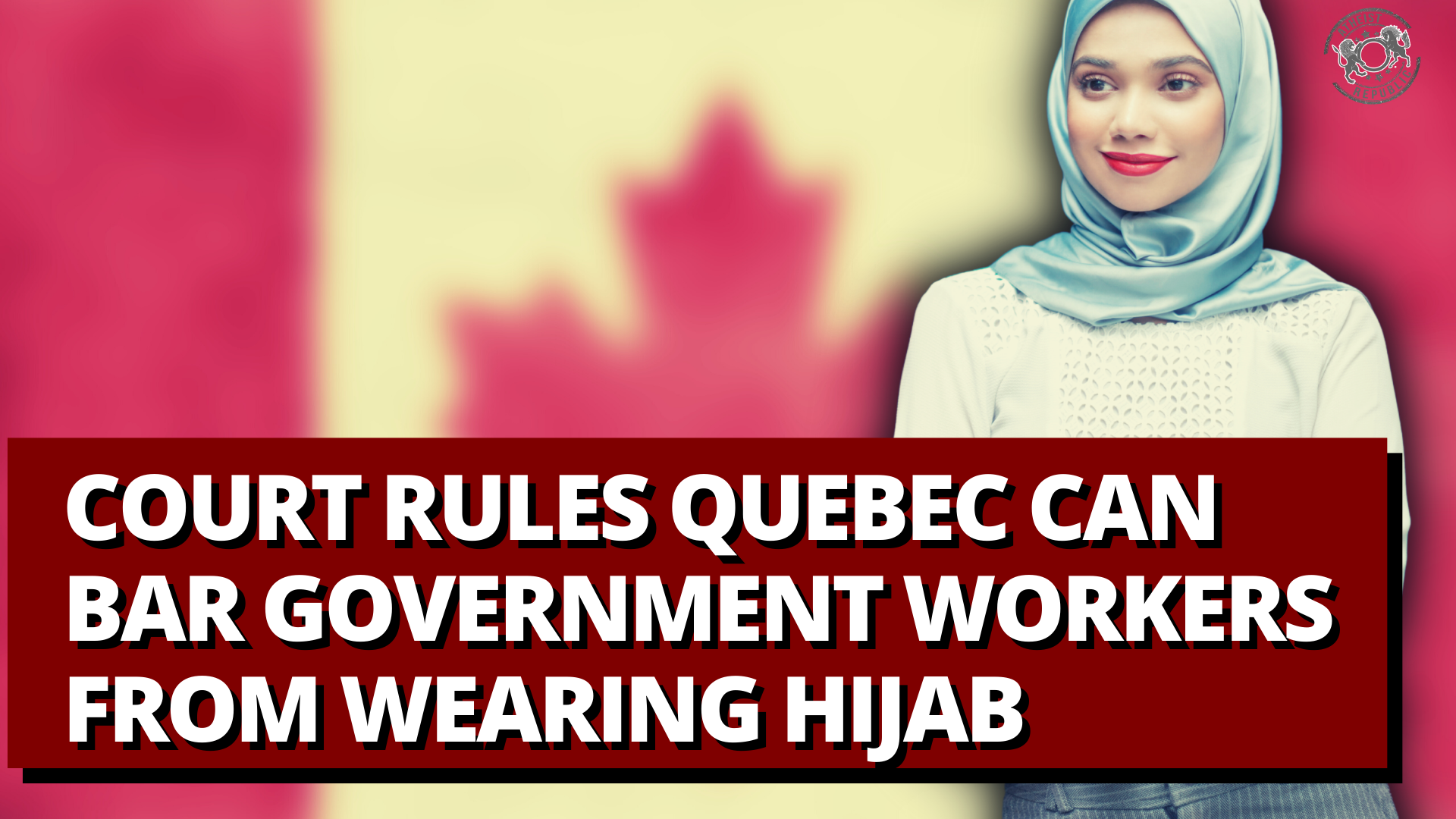
On the morning of Tuesday April 20th, the Canadian Province of Quebec announced plans to appeal a ruling which exempted minority teachers and some politicians from wearing religious attire or symbols.
The ruling, that supports much of a 2019 law, does not apply to teachers in Quebec's English-language school boards, as they hold special rights over education under the Canadian Charter of Rights and Freedoms.
The appeal supports the ban on Quebec’s teachers, politicians, police from wearing Islamic attire and other religious symbols.This ban includes the Muslim hijab, Sikh turbans, or Jewish yarmulkes.
Justice Blanchard decreed that specific provisions pertaining to English school boards are unconstitutional. He also vetoed a ban on national assembly members from wearing face coverings.
.@EnglishMTL is elated with the decision to strike down key provisions of #Bill21, An Act Respecting the Laicity of the State. This decision is specific to English-language school boards based on Sec. 23 of the Canadian Charter of Rights and Freedoms. #QCPoli #Loi21
— English Montreal School Board (@EnglishMTL) April 20, 2021
In Blanchard’s 240-page ruling, he advised that Bill 21 "does not violate the Canadian constitutional architecture" or "the rule of law."
Though he concluded that certain clauses in the bill violate Section 23 of the constitution — precisely the guarantee for minority language rights — he will not rescind the fundamentals of the law.
Notably, the plaintiffs raised attention to Section 28, where sexual equality is guaranteed, reasoning that it discounts Muslim women wearing hijabs in particular.
Blanchard agrees that Muslim teachers would be most negatively affected by the law, but he does not yield to the plaintiff’s views that Section 28 is not sheltered by the notwithstanding clause.
The decision states, "Section 28 of the Canadian charter, which guarantees equal rights for both sexes, has no scope other than interpretive, and it does not independently invalidate laws."
The English Montreal School Board tweeted how it was “elated” by the ruling to reject the ruling provisions pertaining to them.
"We value the diversity of our students and staff and respect their personal and religious rights, which are guaranteed both by the Canadian and Quebec charters of rights," Wrote Joe Ortona, chairman of the English Montreal School board.
“This legislation runs contrary to what we teach and to the culture of respect for individual rights and religious freedoms within English-language schools."
Aside from the English-language school staff, the ruling exempts Quebec’s provincial parliament members, too.
Joe Ortona added, “We are elated. It means that we can now hire any qualified teacher to work in our system regardless of whether they choose to wear a religious symbol.”
Local media reports that the Quebec government intends to appeal the decision.
Simon Jolin-Barrette, Quebec Justice Minister, explains how appealing Tuesday’s ruling is so the law will apply equally — to everyone. Civil servants such as judges and police officers are still prohibitedfrom wearing religious attire such as Sikh Muslim turbans, Jewish yarmulkes, and Muslim hijabs while working.
The Montreal daily La Presse quotes Justice Minister Jolin-Barrette as stating,“Quebec laws must apply to everyone and across the territory of Quebec. There are not two Quebecs; there is only one.”
Quebec invoked a little-known clause to limit legal objections to Bill 21, an attempt to prevent groups from claiming the law violated freedom of religion and other protected rights. The case litigants use different Charter pathways to argue the unconstitutionality of the law.
The government of Quebec designed the law to support and preserve secularism in the province of French-speaking professionals.
On Tuesday, Premier François Legault said,"We cannot divide Quebec in two."
